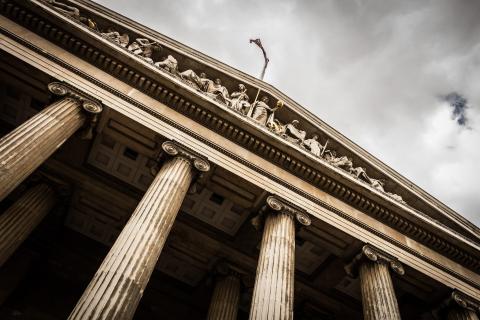A US district court in Delaware on Monday found state statutes that prevent independent voters from being appointed as judges to be unconstitutional. Pro-voter reforms are calling it a win as they attempt to break the major parties’ strangling grip over US elections.
Article 4, Section 3 of the Delaware Constitution restricted the power of the governor to appoint judges by limiting appointments to members of the Republican and Democratic Parties – an appointment power that spans from chief magistrates of the Justice of the Peace Court to members of the state’s Supreme Court.
The district court writes:
The “major political party” restriction upon the judicial appointment power of the Governor of the State of Delaware, found in the final clause of each of the three paragraphs in Article IV, Section 3 of the Delaware Constitution set forth above, is in violation of the rights under the First Amendment as applicable to the state through the Fourteenth Amendment to the United States Constitution of potential applicants for judicial office on the Supreme Court, the Case and/or the Court of Chancery who are unaffiliated with either major political party. Accordingly, the “major political party” restriction upon the judicial appointment power of the Governor of the State of Delaware is unenforceable to the extent it would preclude a person unaffiliated with a major political party from becoming a member of one of the foregoing courts.
The decision is heralded by independent voter advocates and activists as a critical steppingstone to challenging the myriad of laws nationwide that discriminate against independent voters, particularly as it pertains to election participation (e.g. in primary elections, etc.), administration, and oversight.
“The Delaware decision is the first decision that looks at the relationship between independents and a system that is set up to put them in second-class status,” said Open Primaries Senior Vice President Jeremy Gruber. “The court finds that this system, on the merits, is unconstitutional.”
Open Primaries is a nonpartisan, nonprofit organization that focuses on the advancement of primary systems that are open to all voters, regardless of political affiliation. But Gruber notes that while many people are familiar with the problems of closed primaries, there is less understanding of deeper systemic issues.
“Most people don't appreciate that [closed primaries] are a symptom of a much larger problem, and that is an election system that is partisan by design where independent voters are discriminated against in a whole host of relationships to electoral politics," he explained.
Delaware is one example of a state that has statutes that discriminate against independent voters, but it is not alone. Many states prevent non-party members from not just having a meaningful say in election, but serving on election boards, as election judges, and as poll workers.
Open Primaries published a report on the partisan nature of election administration. According to the group’s findings, nearly all of the states that register voters by party affiliation “restrict or privilege boards of elections, canvassers, or related boards to major party members.”
Nearly all of these states “restrict or privilege poll workers/watchers/inspectors/registrars to major party membership.” Even secretaries of state, who are in charge of overseeing state elections, are elected in partisan elections and are loyal to a party.
THERE’S MORE: Check out the “Partisanship In State Electoral Codes Interactive Map”
This is what nonpartisan reformers and independent voter advocates mean when they call it a “duopoly.” Party members at every level of the electoral process make the rules, enforce the rules, and have positioned themselves to be the “watchmen” to oversee their own elections.
The US is the only western democracy with an election system that gives so much control to private political parties.
Why The Delaware Court Decision Is So Critical
Gruber explained that the partisan system has always been a problem, but over the last few years it has started to break down because: (1) a substantial growth in independent voters, and (2) the parties are increasingly becoming more unbalanced at the state level.
“We have a partisan election system that is based on the idea of party parity, meaning that instead of having a nonpartisan system, the system is kept balanced by the parties checking each other,” he said.
An example used by the Open Primaries report of party parity is the Federal Elections Commission (FEC). Unlike most federal agencies, which have an odd number of seats to ensure things get done, the FEC has 6 seats split evenly between Republicans and Democrats.
The commission is designed to ensure that neither party has an advantage. Many state boards of elections follow the same model – initially designed to divide the seats 50/50 between the two parties – to ensure neither party could “game” elections.
“As long as states were politically diverse, and most Americans were members of the two major parties, this model functioned - albeit imperfectly,” states the Open Primaries report. But the parties are not at equal strength anymore and party membership is rapidly declining.
The system, in Gruber’s words, is out of balance – which has exposed not only its vulnerabilities, but the deep-seated discrimination against the record number of voters outside the major parties, who want to participate in the election process in a variety of ways, but can’t because of the laws in place.
By finding statutes that uphold the partisan system unconstitutional, Gruber said the court's decision in Delaware “opens the door for legal challenges of every statute in every state’s electoral code that discriminates against independent voters.”
“Our electoral system, which is partisan by design, is now open to attack legally as a result of this decision,” he remarked.
